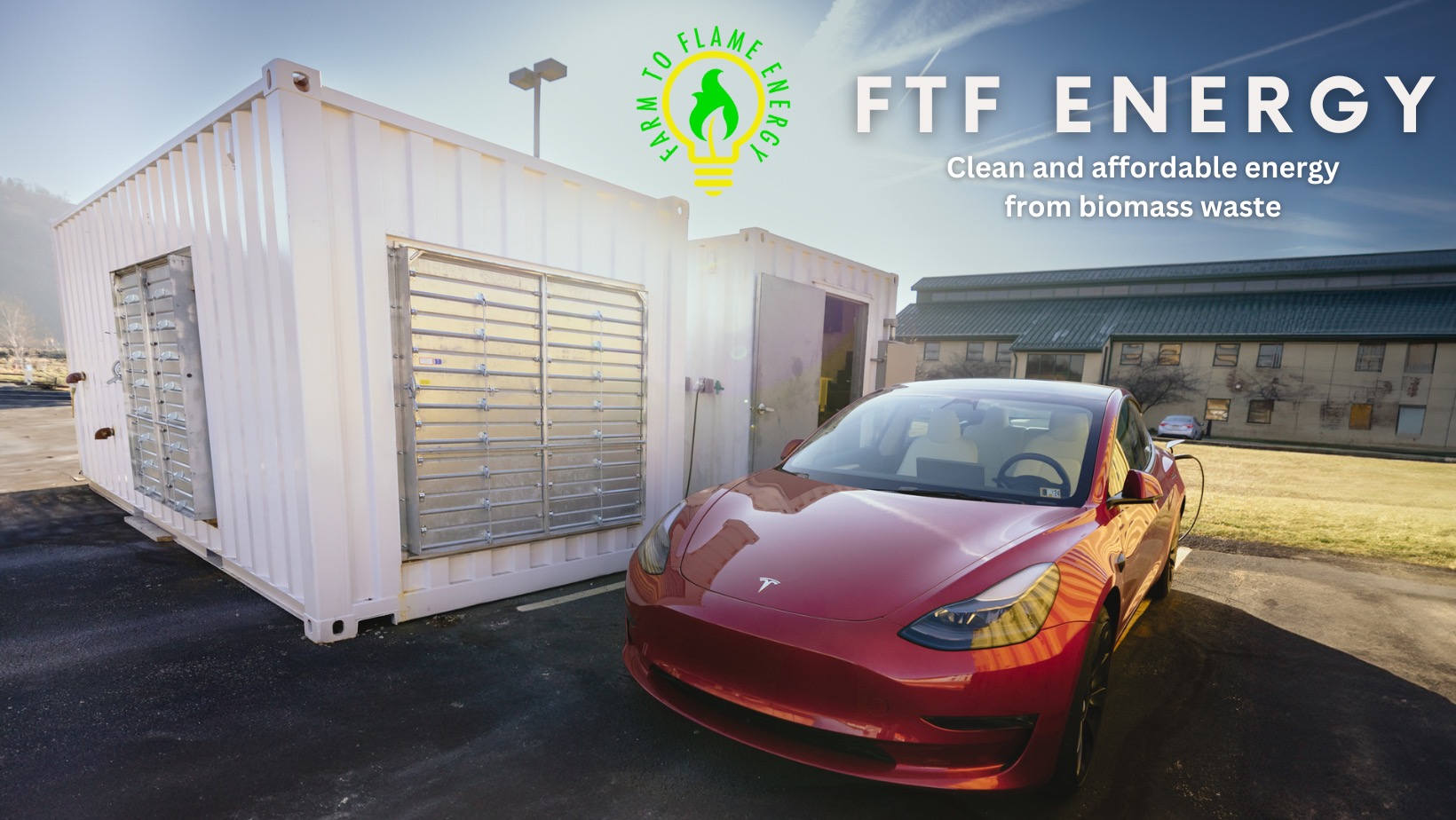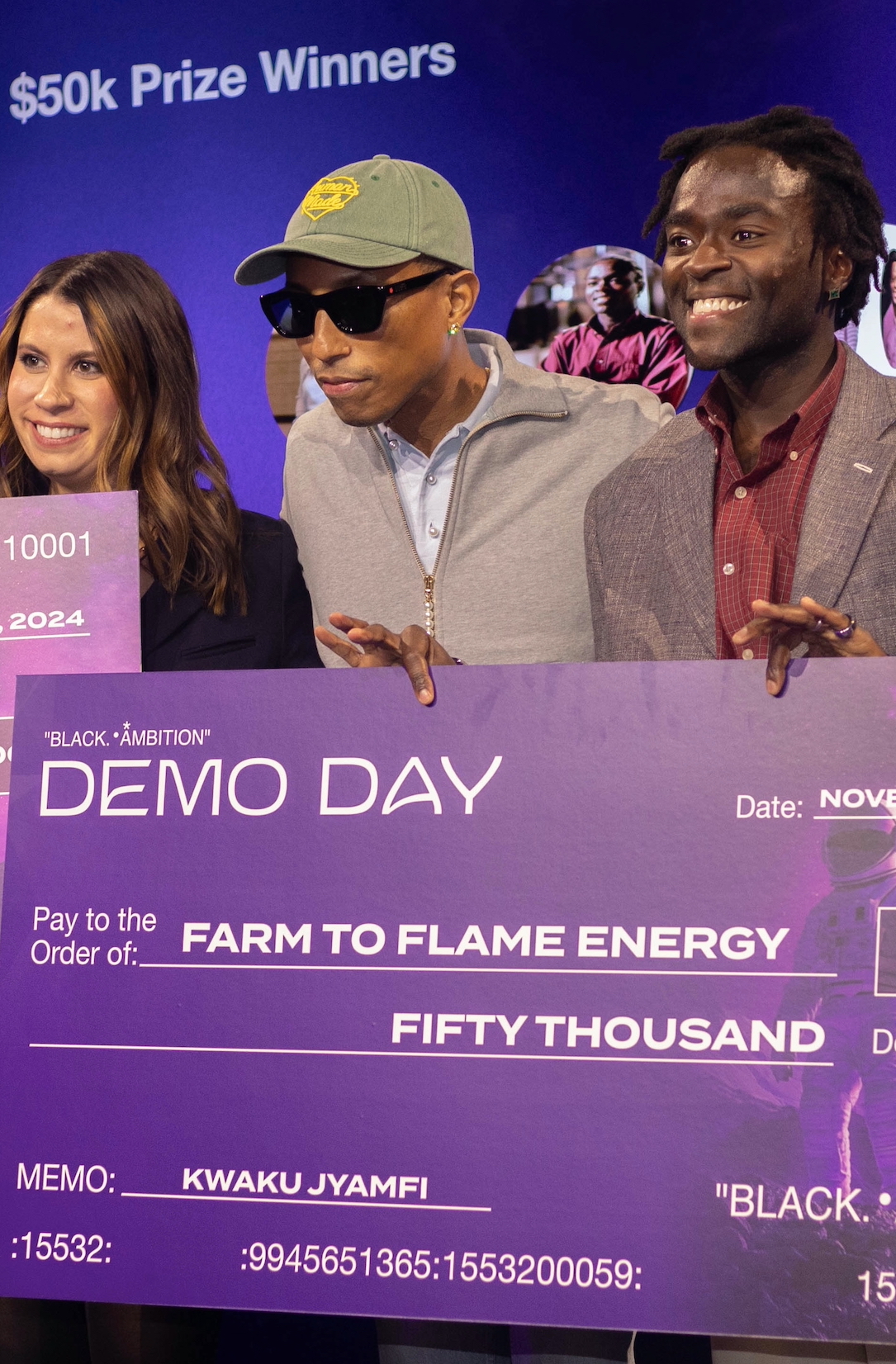
CEO'S FOR A GREENER FUTURE
An Interview with Kwaku Jyamfi
President and CEO, Farm to Flame Energy
by Rebecca L. Lucore
 September 18, 2025
September 18, 2025
When it comes to various facets of sustainability – energy, technology, supply chain, social justice, and more – Pittsburgh nonprofits, companies, and start-ups innovate and incubate with some of the best. And when it comes to networking amongst those great sustainability minds, Pittsburgh excels there too. There are so many meet ups and issue deep-dives taking place it’s hard to make it to everything. But there was one recent meet up I was very happy I made it to. There were a lot of new faces there and so many great new connections, including Kwaku Jyamfi, President and CEO of Farm to Flame Energy. I had the opportunity to grab him for a quick interview.

Tell us about Farm to Flame Energy. Where did the idea come from?
I have always been interested in water treatment and clean energy since my youth. At Syracuse University, I worked in research labs in Biofuel production and water analysis. I met my cofounder where I learned that his grandfather and uncle patented a combustion process where they could burn agricultural and woody waste with no smoke or odor. We decided to commercialize this into a generator as a replacement for diesel generators at play in much of the emerging world and remote locations in the US.
We founded the company after our senior year of undergraduate school as I attended Carnegie Mellon for my graduate work. That’s when we built a demonstration unit on my porch. It all happened rather quickly from there. First, we received a $1.2 million letter of intent signed, and I used that traction to get funding from the EPA after graduation. Next, we signed commercial contracts with companies like Georgia Pacific.
We developed a better business model here in this region where we could work with corporations, who are paying six to eight figures yearly on Waste Management fees, by converting their waste into energy - eliminating the Waste Management fee and reducing their energy bills.
Who is Your Target Audience and Ideal Geographic Reach?
We work with corporations who pay six to eight figures per year on waste (specifically organic waste) and hauling fees. We convert this waste into on-site energy for heat or power, or both. This includes steel mills, food processing plants, and several other mills to convert waste or waste heat to energy in the United States. We also span to one of the largest chocolate making companies in Ghana, where we have a $20.4 million agreement signed for a 5 MW heat and power plant.
Kwaku Jyamfi
Kwaku Jyamfi, President and CEO, Farm to Flame EnergyWhat are Some of Your Greatest Challenges and Opportunities?
Some of the greatest challenges are on boarding, talent appropriate workers for this space and overcoming long sale cycles.
Some of the biggest opportunities existing in today's markets include AI and data centers. Because Farm to Flame builds micro grids, we don't face longer regulatory cues for transmission and distribution so we can collocate our generators next to data centers, manufacturing plants, and other industrial sites that need baseload energy.



Leave A Comment